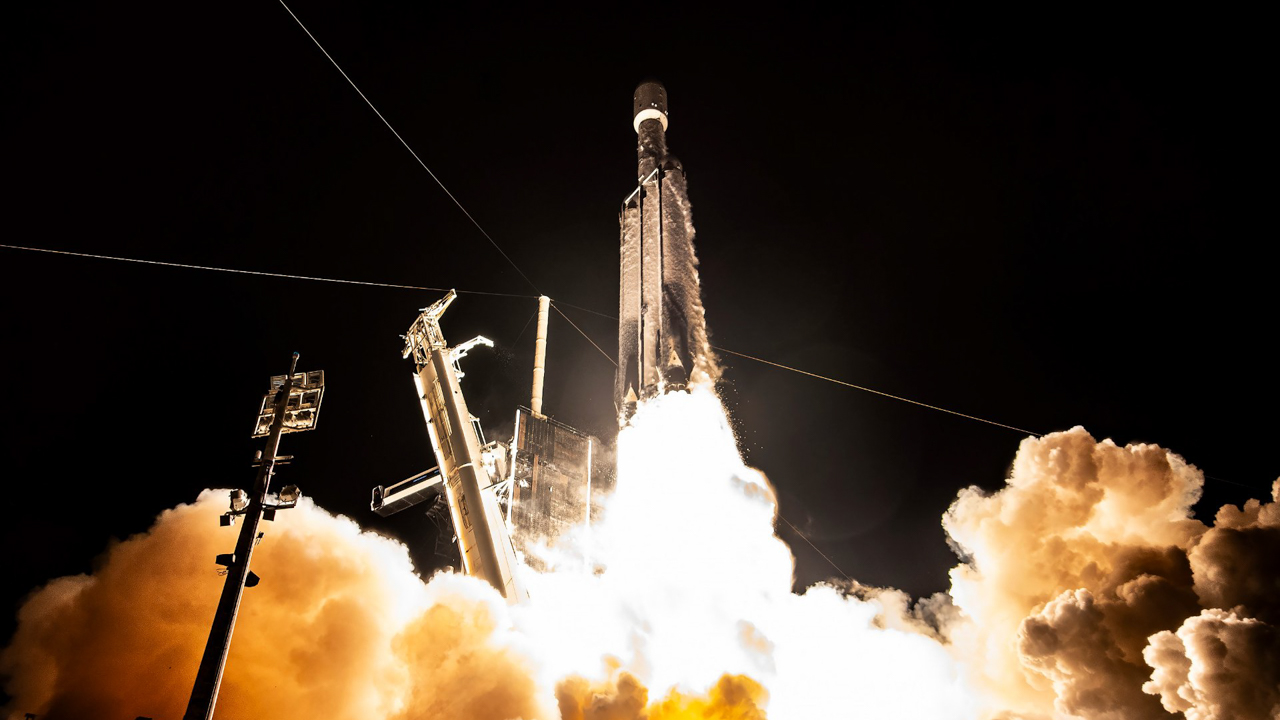
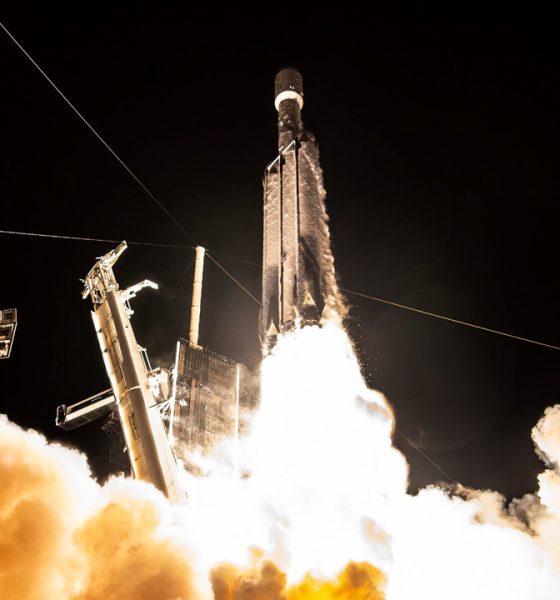
News
SpaceX aces Falcon Heavy launch
Falcon Heavy lived up to its name Friday evening as it launched the heaviest geostationary satellite ever.
The 9,200 kg (20,282 lbs) Echostar XXIV (Jupiter 3) satellite was launched at 11:04 p.m. ET (03:04 UTC) from Launch Complex 39A at Kennedy Space Center in Florida.
Liftoff! pic.twitter.com/7fep4mFSOi
— SpaceX (@SpaceX) July 29, 2023
The satellite was launched to geostationary transfer orbit, and from there, it will use its onboard thrusters to continue its journey to geostationary orbit. The satellite will be able to handle 500+ gigabytes of bandwidth capacity and provide speeds up to 100 megabytes per second. The satellite’s final orbit will be at 95 degrees west latitude and 22,300 miles above the equator over the Americas.
Originally meant to launch on Wednesday, July 26th, the countdown was aborted just over a minute before launch due to a stuck valve and prevented pressurization of a component. SpaceX then took a day, replaced the valve, and launched successfully.
Following launch, the two side boosters separated from the rocket two and a half minutes into the flight, the stages then performed a boost back burn to slow their momentum and accelerate back to the landing zones. The two side boosters performed a single engine entry burn in order to save performance.
Falcon Heavy’s side boosters have landed on LZ-1 and LZ-2 at Cape Canaveral Space Force Station pic.twitter.com/OItmoqvgrr
— SpaceX (@SpaceX) July 29, 2023
While the side boosters performed their boost back burns, the center core and 2nd stage separated, signaling the end of the center core as it needed maximum performance and was expended, eventually making an uncontrolled splashdown in the Atlantic Ocean.
As the side boosters continued their way to landing zones 1 and 2, they reignited three engines to slow down just before touchdown, marking the 211th and 212th recovery of an orbital class rocket. The side boosters touched down approximately 7 minutes and 51 seconds after lift-off, tying or just barely breaking the record for fastest launch to landing. The Arabsat-6A mission was the previous record holder.
These side boosters will be refurbished and used for a future Falcon Heavy mission. which there could be two more this year, the Psyche mission for NASA and the USSF-52 mission for the U.S. Space Force.
Up next for SpaceX will be Galaxy 37 communications satellite, currently scheduled to launch no earlier than just after midnight local time on August 3rd.
Questions or comments? Shoot me an email at rangle@teslarati.com, or Tweet me @RDAnglePhoto.

News
Tesla CEO Elon Musk outlines expectations for Cybercab production
“…initial production is always very slow and follows an S-curve. The speed of production ramp is inversely proportionate to how many new parts and steps there are. For Cybercab and Optimus, almost everything is new, so the early production rate will be agonizingly slow, but eventually end up being insanely fast.”
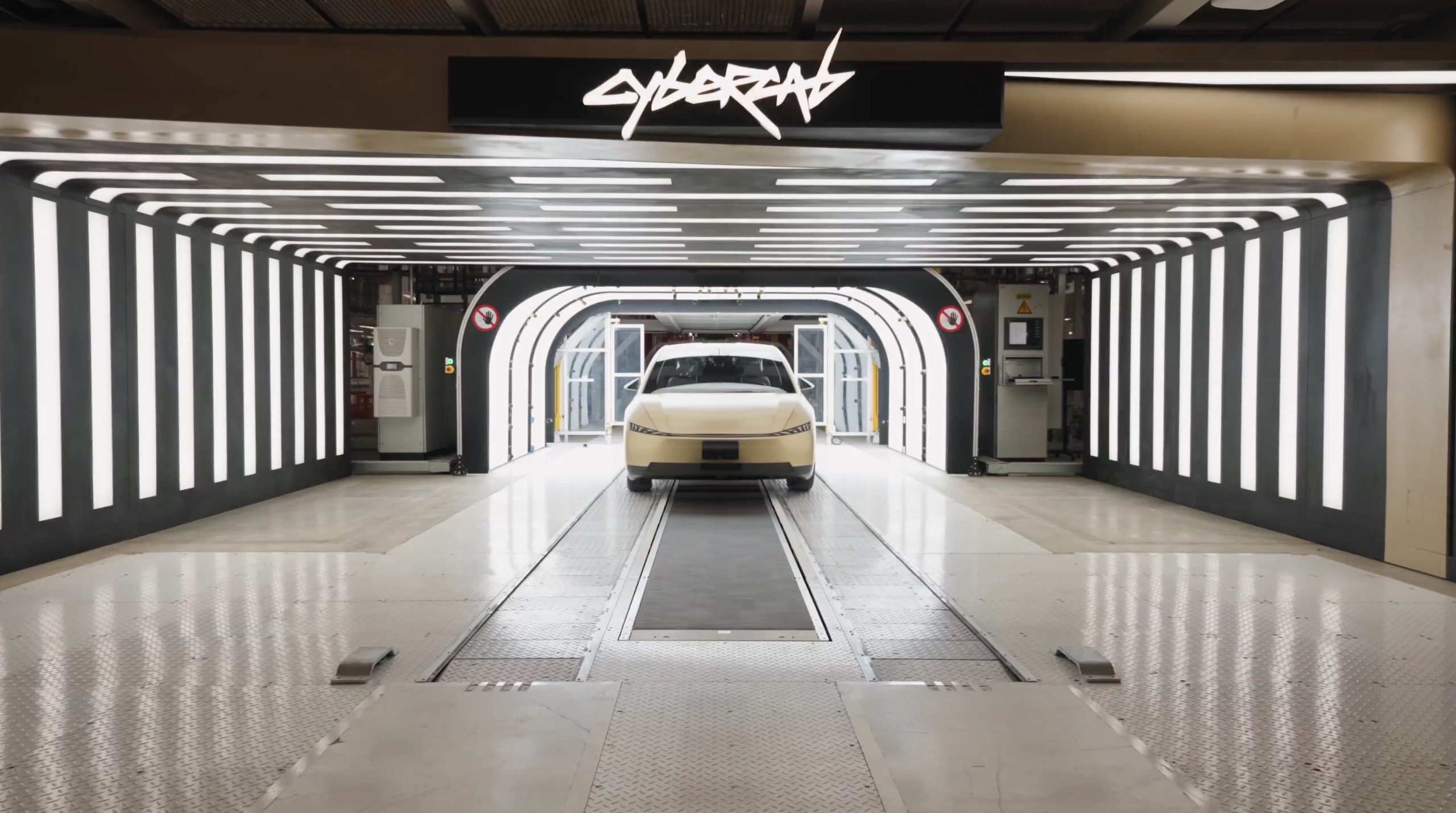
Tesla CEO Elon Musk outlined expectations for Cybercab production as the vehicle is officially set to start rolling off manufacturing lines at the company’s Giga Texas factory in less than 100 days.
Cybercab is specifically designed and catered to Tesla’s self-driving platform and Robotaxi ride-hailing service. The company has been pushing hard to meet its self-set expectations for rolling out an effective self-driving suite, and with the Cybercab coming in under 100 days, it now needs to push for Unsupervised Self-Driving in the same time frame.
Tesla CEO Elon Musk confirms Robotaxi is set to go unsupervised
This is especially pertinent because the Cybercab is expected to be built without a steering wheel or pedals, and although some executives have said they would build the car with those things if it were necessary.
However, Musk has maintained that the Cybercab will not have either of those things: it will have two seats and a screen, and that’s it.
With production scheduled for less than 100 days, Musk broke down what people should expect from the initial manufacturing phases, being cautiously optimistic about what the early stages will likely entail:
“…initial production is always very slow and follows an S-curve. The speed of production ramp is inversely proportionate to how many new parts and steps there are. For Cybercab and Optimus, almost everything is new, so the early production rate will be agonizingly slow, but eventually end up being insanely fast.”
Musk knows better than most about the challenges of ramping up production of vehicles. With the Model 3, Musk routinely refers to it as “production hell.” The Cybertruck, because of its polarizing design and stainless steel exterior, also presented challenges to Tesla.
With the important caveat that initial production is always very slow and follows an S-curve.
The speed of the production ramp is inversely proportionate to how many new parts and steps there are.
For Cybercab and Optimus, almost everything is new, so the early production…
— Elon Musk (@elonmusk) January 20, 2026
The Cybercab definitely presents an easier production process for Tesla, and the company plans to build millions of units per year.
Musk said back in October 2024:
“We’re aiming for at least 2 million units a year of Cybercab. That will be in more than one factory, but I think it’s at least 2 million units a year, maybe 4 million ultimately.”
When April comes, we will find out exactly how things will move forward with Cybercab production.
News
Tesla reveals awesome Model 3 and Model Y incentive, but it’s ending soon
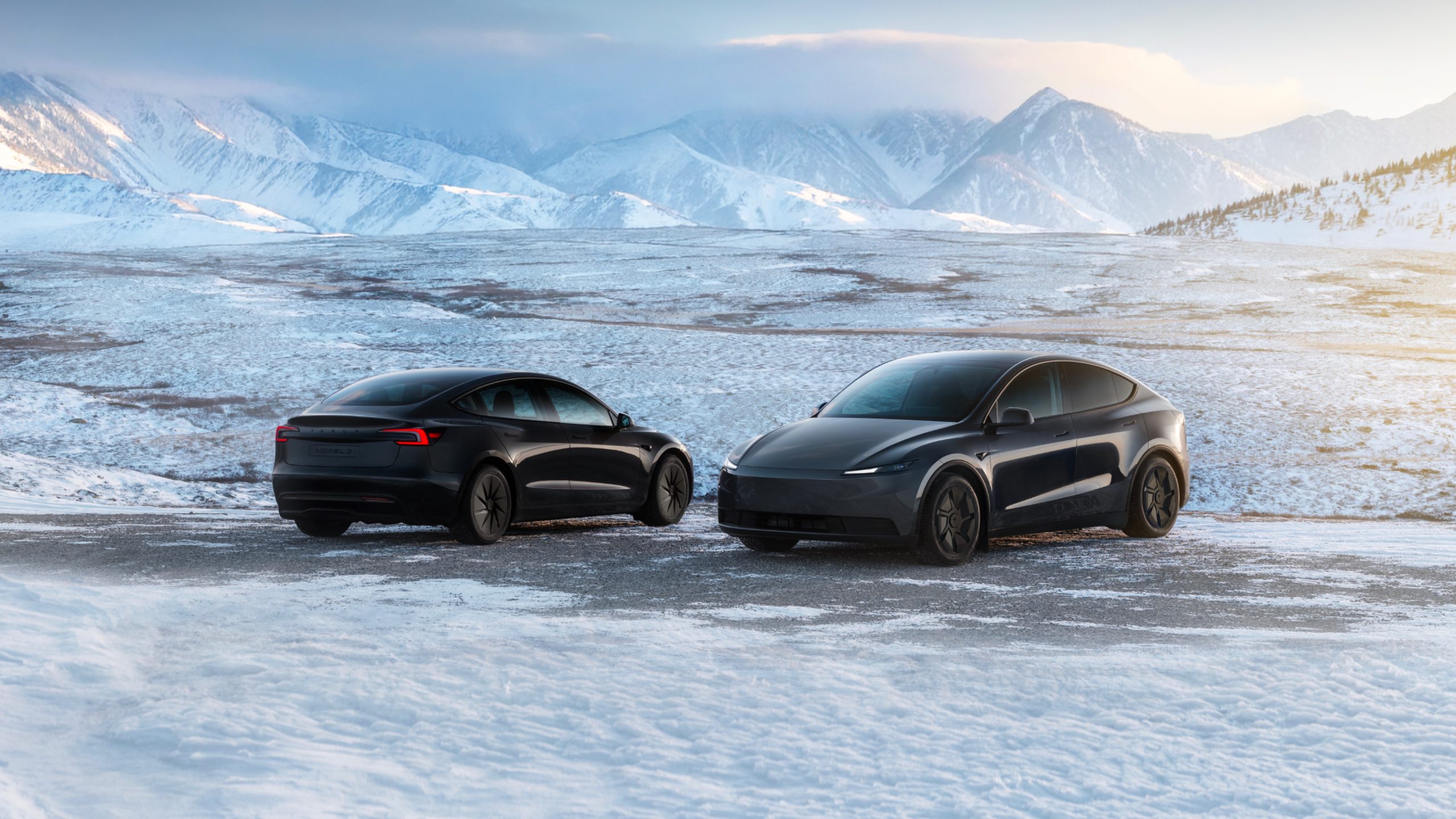
Tesla has revealed an awesome Model 3 and Model Y incentive to help consumers make the jump to one of its affordable mass-market vehicles, but it’s ending soon.
Tesla is offering one free upgrade on eligible inventory of the Model 3 and Model Y until February 2.
This would help buyers receive the most expensive paid option on the vehicle at no additional cost, meaning white interior or a more premium paint option will be free of charge if you take delivery on or before February 2.
Tesla states on its website for the offer:
“Only for limited inventory while supplies last. Price displayed on inventory listings already deducts the cost of the free option.”
Tesla says its one free upgrade offer on eligible U.S. inventory for the Model 3 and Model Y ends February 2.
With this incentive, buyers receive the most expensive paid option on the vehicle at no additional cost (up to $2k in savings). pic.twitter.com/IhoiURrsDI
— Sawyer Merritt (@SawyerMerritt) January 21, 2026
This latest incentive is just another advantage Tesla has by selling its vehicles directly and not using some sort of dealership model that relies on approvals from higher-ups. It is important to note that these programs are offered to help stimulate demand and push vehicles into customers’ hands.
It is not the only incentive Tesla is currently offering, either. In fact, there is a much larger incentive program that Tesla is working on, and it has to do with Full Self-Driving transfers, which could result in even more sales for the company through Q1.
Tesla is ending its FSD Transfer program on March 31, as it plans to transition to a Subscription-only basis with the self-driving suite for anyone who has not already purchased it outright.
This could help drive some on-the-fence buyers to new vehicles, but it remains to be seen. Given the timing of the program’s demise, it appears Tesla is hoping to use it to add additional sales and bolster a strong Q1 2026.
Interior and exterior paint colors can add up to $2,000 if you choose the most premium Ultra Red body color, or an additional $1,000 for the Black and White interior option. The discount, while small, could help get someone their preferred design configuration, instead of settling for something that is not quite what they want.
News
Tesla Full Self-Driving gets outrageous insurance offer with insanely cheap rates
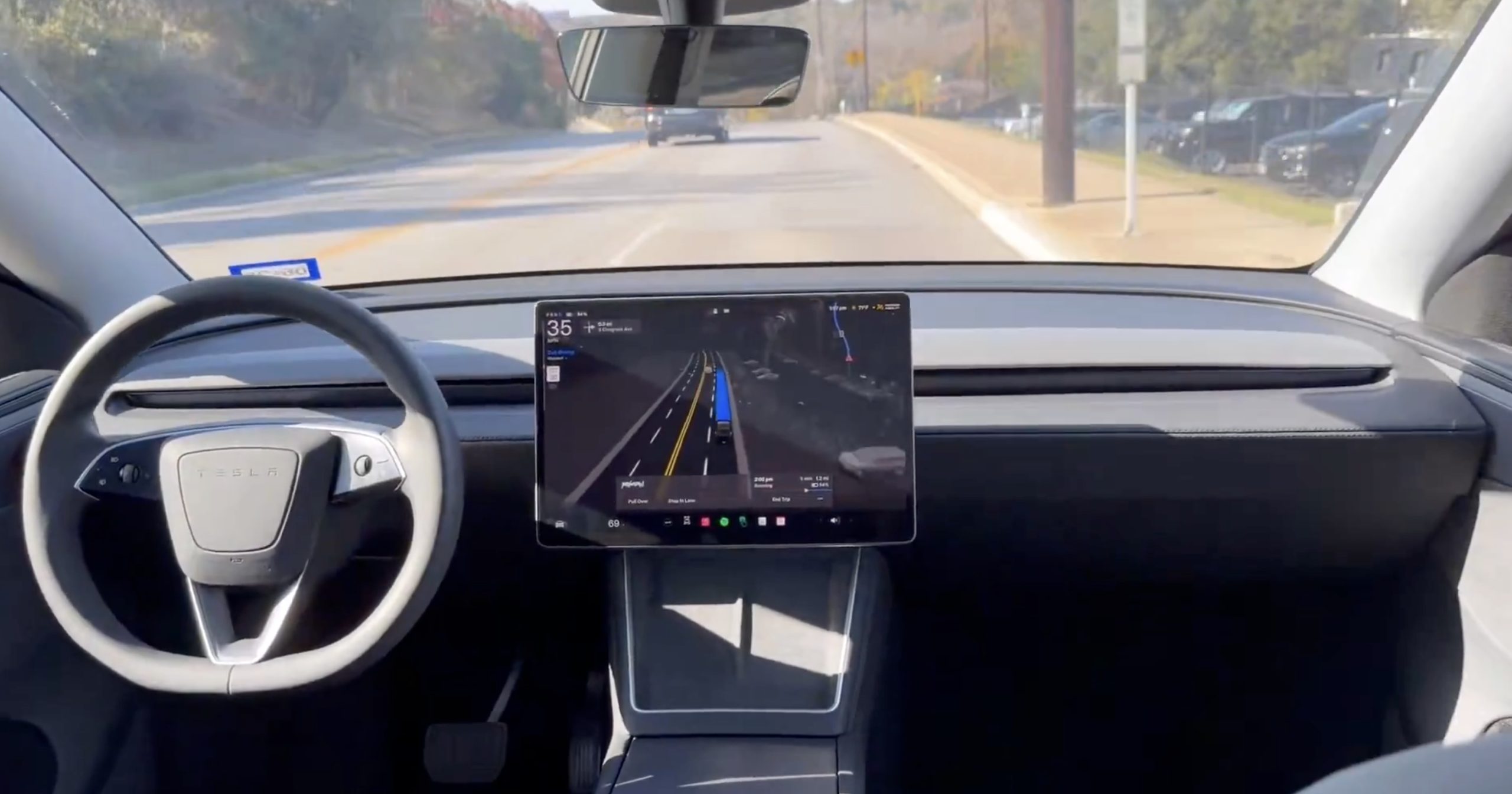
Tesla Full Self-Driving is getting an outrageous insurance offer with insanely cheap rates that will slash the cost of coverage by 50 percent.
Lemonade, a digital insurance company, has launched its first-of-a-kind product known as Lemonade Autonomous Car Insurance, and it is starting with an exclusive offer to FSD. The new offer will cut rates for FSD-engaged driving by “approximately 50 percent,” highlighting the data that shows a significantly safer driving environment when the suite is activated and engaged.
The company also said it plans to introduce even cheaper rates as Tesla continues to release more advanced FSD versions through software updates. Tesla has been releasing new FSD versions every few weeks, highlighting vast improvements for those who have the latest AI4 chip.
The announcement comes just a few months afterLemonade Co-Founder and President Shai Wininger said that he wanted to insure FSD vehicles for “almost free.” He said that Tesla’s API complemented Lemonade’s AI-based platform because it provides “richer and more accurate driving behavior data than traditional UBI devices.”
Tesla Full Self-Driving gets an offer to be insured for ‘almost free’
In mid-December, Lemonade then offered Tesla owners in California, Oregon, and Arizona the opportunity to connect their vehicles directly to the company’s app, which would provide a direct connection and would require a separate telematics device, which is required with other insurance providers who offer rates based on driving behaviors.
This latest development between Lemonade and Tesla is something that Wininger believes will be different because of the advanced nature of FSD:
“Traditional insurers treat a Tesla like any other car, and AI like any other driver. But a car that sees 360 degrees, never gets drowsy, and reacts in milliseconds can’t be compared to a human.”
He went on to say that the existing pay-per-mile product has given the company something that no traditional insurer has been able to offer. This comes through Lemonade’s “unique tech stack designed to collect massive amounts of real driving data for precise, dynamic pricing.”
The reputation FSD has gathered over the past few years is really impressive. Wininger backed this with some more compliments:
“Teslas driven with FSD are involved in far fewer accidents. By connecting to the Tesla onboard computer, our models are able to ingest incredibly nuanced sensor data that lets us price our insurance with higher precision than ever before.”
The product will begin its official rollout in Arizona on January 26. Oregon will get it a month later.








